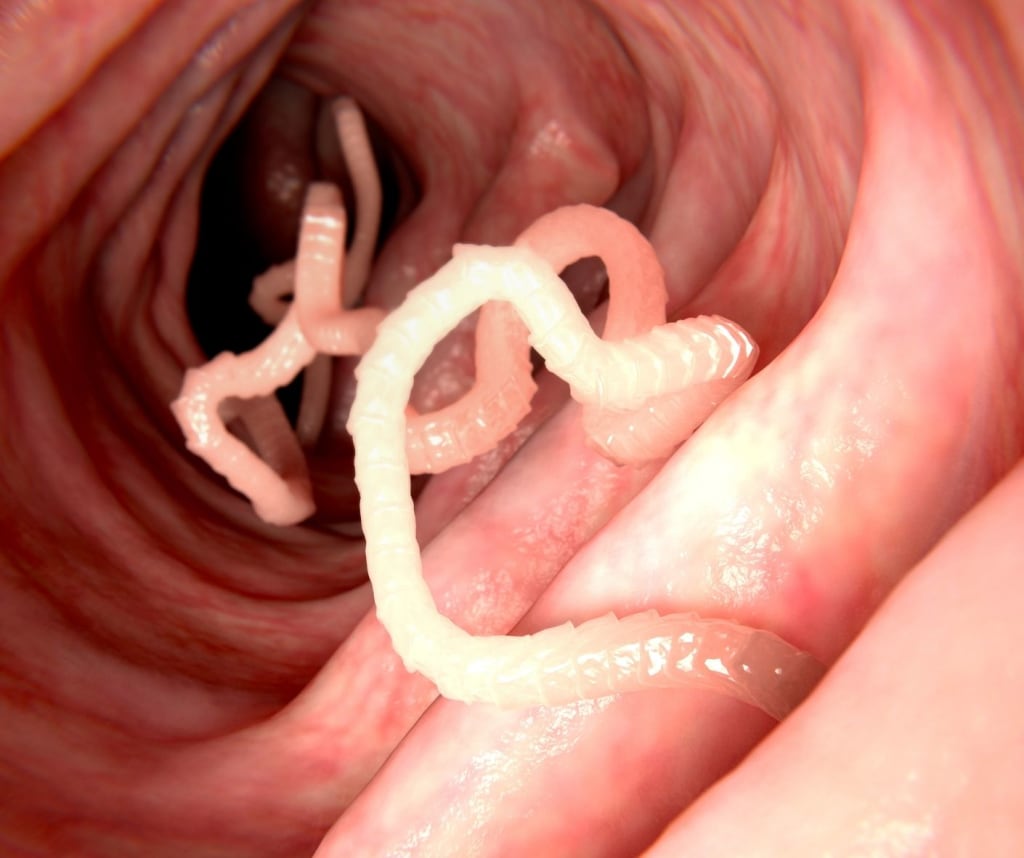Intestinal Worms
What You Need to Know About Intestinal Worms

When you hear the word intestinal parasites or even worms, you may be feeling a bit squeamish. However, it is important to know and understand them a little more, especially if you have pets (and children). Your dog or cat can get worms, that may be passed onto you and your family.
So, how can my pet get intestinal parasites?
Getting intestinal parasites is easier than you think. Your dog or cat needs to come into contact with these parasites, and then they will have them. They can do this in several ways, including:
- Swallowing fleas while they are grooming themselves.
- Ingesting water or soil that has been contaminated with the worms (or even feces that had the worms in it).
- Eating prey that has intestinal parasites.
- Swallowing the eggs of these parasites that were brought into the home by you and your other pets.
What are some signs that your dog or cat may be exhibiting if he or she has intestinal parasites?
- Vomiting and diarrhea, with or without blood
- Blood loss
- Malnutrition
- Weight loss
- And even death!
What can you do to prevent intestinal parasites?
So, what can you do to keep your pets and family safe? Here are some things that you should do on a regular basis.

You should deworm all new puppies and kittens. Puppies and kittens are born with worms, so it is important to make sure that you deworm them multiple times when they are young.
You should do the same with any new pets that you get. If you don't know the history of your new pet, you should deworm him or her a few times to make sure that your pet is worm free.
It also helps to deworm your pets regularly. Any dogs that spend time outside should be dewormed regularly. Cats who hunt are also at risk, so you should be deworming them multiple times a year.
You also need to practice good hygiene. You should always wash your hands after playing with your animals, as well as any time that you come inside.
You can also do this by cleaning up your dog's stool regularly. If you pick up after your dog when he or she goes to the bathroom, even if there are worms, it is less likely to transfer into the ground where your dog or cat could get reinfected.
You should also watch your children. You shouldn't allow them to play where your dogs and cats go to the bathroom. If you have a lot of wildlife around, keep your children away from areas where they spend a lot of time.
Whether you have cats or not, you should always cover up your children's sandboxes. These are often seen as litter boxes for any cat. By covering them up, they are less likely to be touching areas where any cats had defecated.
You should also make sure that everyone wears shoes. Though you may love to walk around barefoot, you should always wear shoes outside. You never know what ground could be contaminated with worms.
That being said, you should also avoid sitting and lying on the ground. You should always bring a blanket or chair to sit in so that you can avoid sitting directly on the contaminated soil.
It is also important that you don't drink water out of streams or other contaminated water. You should carry bottled water with you, wherever you go so that you don't have to even think about drinking water that could carry worms in it.
If you have pets, you need to keep them on flea and tick prevention all year round. Fleas are known to carry tapeworms, so the best way to avoid that is by treating your pets all year round.

Let's face it. Intestinal parasites and worms are gross. For this reason, you should always deworm any new puppies and kittens. You also should deworm any new to you pets. If your cat is a hunter, you should deworm him or her routinely, so that your family is safe.
You also need to think about what you and your family do. You shouldn't let your children play in the dirt where infected feces may be. Cover up the sandbox since it looks like a giant litter box to cats. You also need to make sure that everyone washes their hands regularly and wears shoes.
Previously published on Vocal.media.
About the Creator
Shelley Wenger
Small town country girl in southern Pennsylvania. Raising two boys on a small farm filled with horses, goats, chickens, rabbits, ducks, dogs, and a cat. Certified veterinary technician and writer at Virtually Shelley.
Enjoyed the story? Support the Creator.
Subscribe for free to receive all their stories in your feed. You could also pledge your support or give them a one-off tip, letting them know you appreciate their work.






Comments
There are no comments for this story
Be the first to respond and start the conversation.